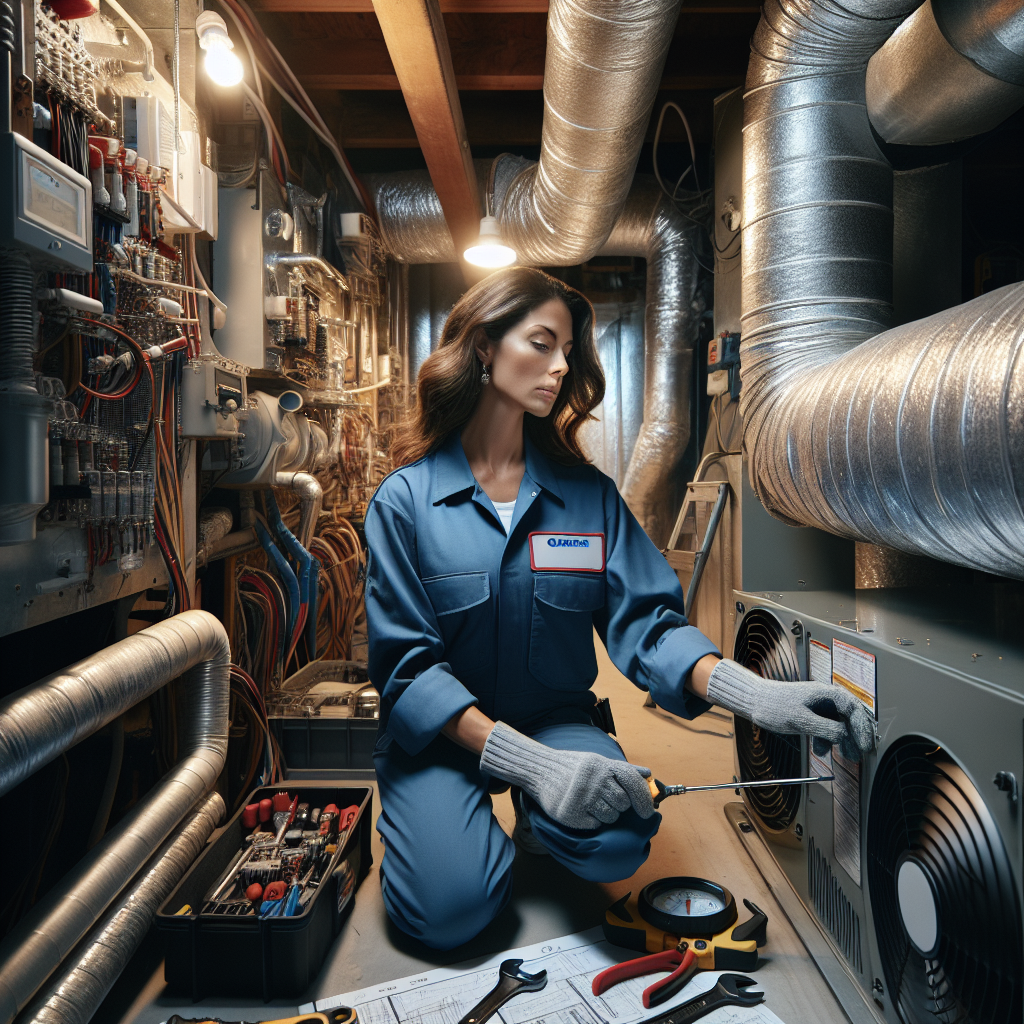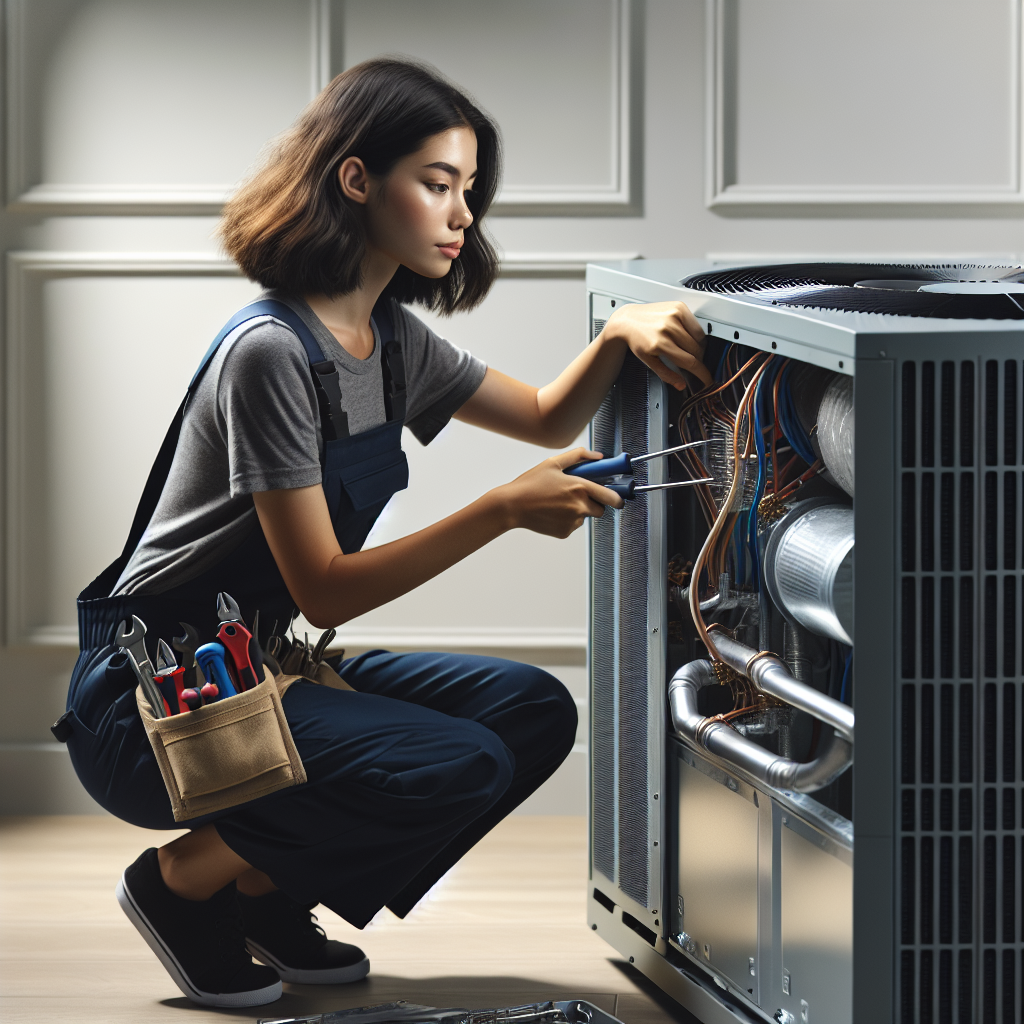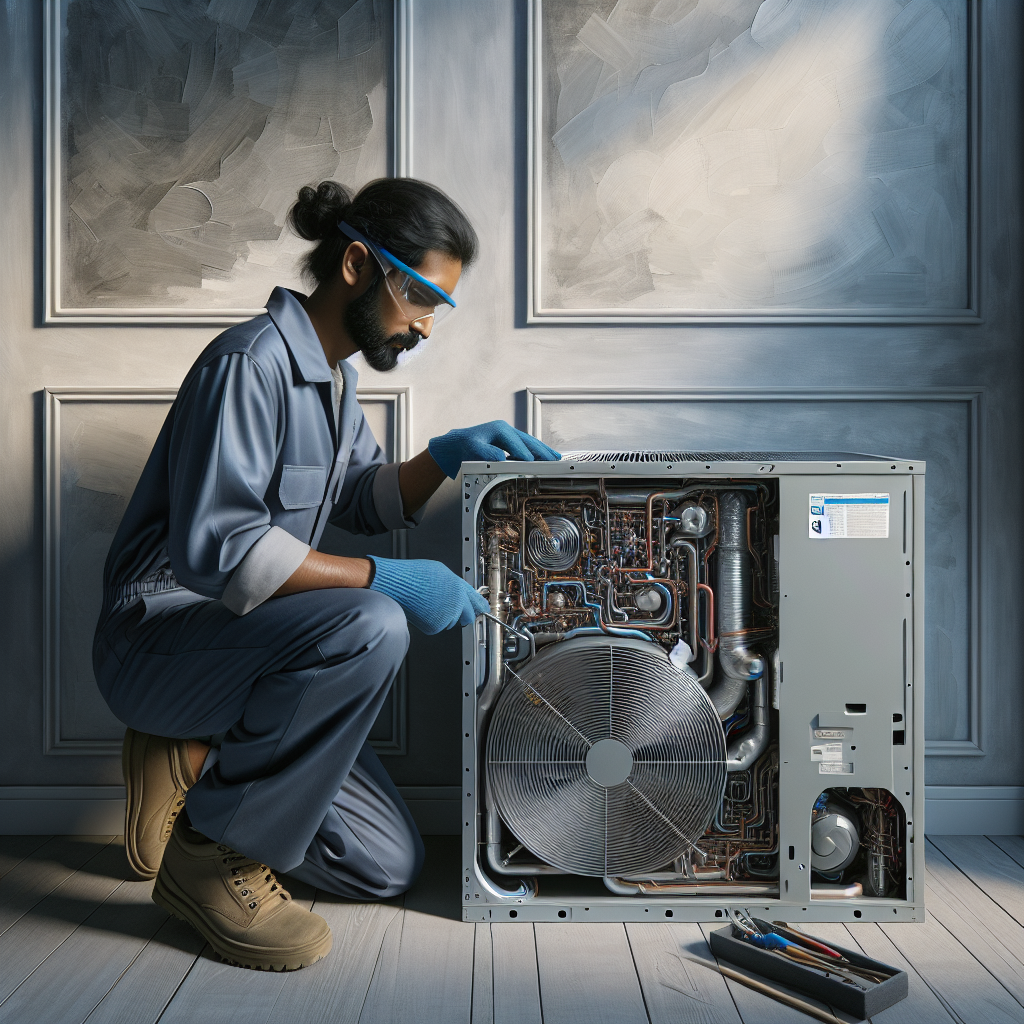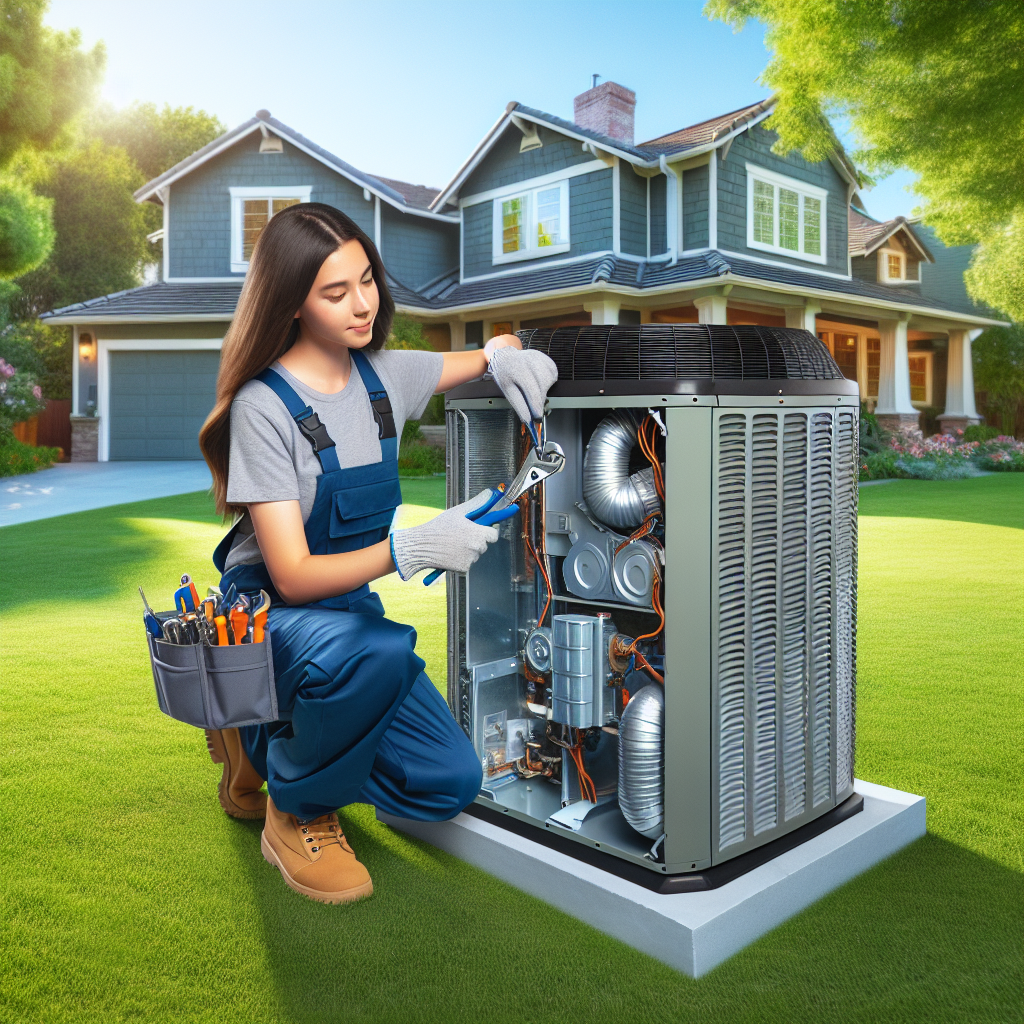
HVAC/R Repair: Quick and Easy Solutions for Your System
When it comes to maintaining a comfortable environment in your home or business, the importance of an efficient HVAC/R system cannot be overstated. HVAC/R, which stands for Heating, Ventilation, Air Conditioning, and Refrigeration, is crucial for regulating indoor climate and ensuring air quality. Whether it’s the sweltering heat of summer or the chill of winter, a well-functioning HVAC/R system is your best ally.
However, like any other mechanical system, HVAC/R units are prone to wear and tear over time. This is where hvac/r repair comes into play. Understanding the basics of HVAC/R repair can help you identify issues early, potentially saving you from costly repairs or replacements down the line. With the right information and professional help, you can keep your HVAC/R system running smoothly year-round.
At Harmony Air LLC, our team of veteran-owned and operated experts is dedicated to providing top-notch hvac/r repair services. From routine maintenance to emergency repairs, we have the skills and experience to handle it all. Call now 772-203-2571 to schedule a consultation or service appointment.
Common HVAC/R System Issues

Understanding common HVAC/R system issues can significantly enhance your ability to maintain and troubleshoot your unit. One of the most frequent problems is a dirty or clogged filter. Over time, filters accumulate dust and debris, which can lead to reduced airflow and system efficiency. Regularly replacing or cleaning filters can mitigate this issue.
Another prevalent issue is refrigerant leaks. Low refrigerant levels can cause your system to lose cooling power, leading to inconsistent temperatures and higher energy bills. Signs of a refrigerant leak include hissing sounds, ice buildup on the unit, and poor cooling performance. It’s essential to address refrigerant leaks promptly to avoid further damage to the compressor.
Thermostat malfunctions are also common. A faulty thermostat can result in inaccurate temperature readings, causing your HVAC/R system to overwork or underperform. Sometimes, a simple battery replacement can resolve the issue, but in other cases, professional calibration or replacement may be necessary.
Lastly, issues with the electrical components of your HVAC/R system can lead to frequent cycling or complete system failures. Problems with capacitors, contactors, or wiring can disrupt the normal operation of your unit. Regular maintenance checks can help identify and fix these issues before they escalate.
By being aware of these common problems, you can take proactive steps to ensure your HVAC/R system remains in optimal condition. Regular maintenance and prompt repairs are key to extending the lifespan of your unit and maintaining a comfortable indoor environment.
Quick DIY HVAC/R Repair Tips

For those who enjoy a hands-on approach, there are several DIY HVAC/R repair tips that can help maintain your system and address minor issues before they become major problems. One of the simplest yet most effective tasks is replacing the air filter. A clean filter ensures optimal airflow and system efficiency. Depending on your system and usage, it’s recommended to check and replace the filter every 1-3 months.
Another useful tip is to clean the condenser coils. Over time, these coils can accumulate dirt and debris, reducing the system’s ability to cool your home. To clean the coils, first, turn off the power to the unit. Then, use a garden hose to gently wash away the dirt. Be careful not to damage the delicate fins.
Checking and clearing the condensate drain line is also crucial. A clogged drain line can cause water damage and affect the system’s performance. You can clear it by using a wet/dry vacuum or a stiff wire to remove any blockages. Additionally, pouring a mixture of bleach and water down the line can help prevent future clogs.
Inspecting and securing any loose or damaged ductwork can also improve your HVAC/R system’s efficiency. Leaky ducts can lead to significant energy loss and uneven cooling or heating. Use metal tape or mastic sealant to seal any gaps or cracks you find.
Lastly, ensure that your thermostat is functioning correctly. Replace the batteries if needed and make sure it is set to the correct mode (heat or cool) and temperature. Regularly calibrating your thermostat can ensure accurate temperature control and prevent unnecessary strain on your system.
By following these simple DIY repair tips, you can keep your HVAC/R system running smoothly and efficiently, saving both time and money in the long run.
When to Call a Professional

While DIY maintenance and minor repairs can be beneficial, there are certain situations where it’s crucial to call a professional HVAC/R technician. Knowing when to seek expert help can prevent further damage, ensure safety, and maintain the efficiency of your system.
One of the key indicators that it’s time to contact a professional is if your system is blowing warm air when it should be cooling, or vice versa. This could indicate a problem with the compressor, refrigerant levels, or another critical component that requires specialized knowledge and tools to diagnose and repair.
Another sign that you should call a professional is if you notice unusual noises coming from your HVAC/R system. Squealing, grinding, or banging sounds can indicate issues such as loose parts, motor problems, or debris caught in the system. These issues can lead to more significant damage if not addressed promptly by a trained technician.
Frequent cycling on and off is another red flag. This behavior, known as short cycling, can be caused by various issues such as a faulty thermostat, refrigerant leaks, or even an oversized system. A professional can accurately diagnose the cause and provide the appropriate solution.
If you observe water pooling around your HVAC/R unit, it’s essential to contact a technician immediately. This could be a sign of a clogged condensate drain, refrigerant leak, or other serious problems that could lead to water damage and mold growth.
Lastly, if you experience significant increases in your energy bills without a corresponding increase in usage, it may indicate that your HVAC/R system is not operating efficiently. A professional can perform a thorough inspection, identify any issues, and recommend the best course of action to restore your system’s efficiency.
Recognizing these signs and knowing when to call a professional can save you from costly repairs, extend the lifespan of your HVAC/R system, and ensure your home remains comfortable year-round.
Preventative Maintenance for HVAC/R Systems

Preventative maintenance is crucial to keep your HVAC/R system running efficiently and prolong its lifespan. Regular upkeep not only helps in avoiding unexpected breakdowns but also ensures that your system operates at optimal performance, saving you money on energy bills and costly repairs.
An essential component of preventative maintenance is **changing or cleaning the air filters** regularly. Dirty filters can restrict airflow, causing the system to work harder and leading to increased energy consumption and wear and tear. It’s recommended to check your filters monthly and replace or clean them every 1-3 months, depending on the usage and type of filter.
Another key aspect is **inspecting and cleaning the coils**. Both the evaporator and condenser coils can accumulate dirt over time, reducing their ability to absorb and release heat. This can result in your system running longer, increasing energy use and wear. Make sure to clean the coils annually or as needed, depending on your environment.
Ensure that the **condensate drain** is clear of any obstructions. A clogged drain can cause water damage and affect indoor humidity levels. Regularly inspect and clean the drain to prevent blockages and ensure proper drainage.
**Checking and tightening electrical connections** is another vital maintenance task. Loose or faulty connections can lead to unsafe operation and reduce the lifespan of major components. Inspect the connections and ensure they’re secure to avoid potential hazards.
Lastly, it’s crucial to **schedule annual professional inspections**. A qualified technician can identify and address potential issues before they become significant problems. They can also perform tasks such as checking refrigerant levels, inspecting ductwork for leaks, and calibrating the thermostat to ensure optimal performance.
By incorporating these preventative maintenance practices into your routine, you can keep your HVAC/R system running smoothly, improve its efficiency, and extend its lifespan, ensuring a comfortable and safe environment for years to come.
Choosing the Right HVAC/R Contractor
Choosing the right HVAC/R contractor is essential for ensuring the quality and reliability of your system’s installation, maintenance, and repair. With numerous contractors available, it can be challenging to make the right choice. Here are some key factors to consider when selecting an HVAC/R contractor:
First, look for **certifications and licenses**. A reputable contractor should have the necessary certifications from recognized industry bodies, such as the North American Technician Excellence (NATE) certification. Additionally, ensure they hold the required licenses to operate in your area, which guarantees they meet local regulations and standards.
**Experience** is another critical factor. Choose a contractor with a proven track record and extensive experience in handling HVAC/R systems similar to yours. Experienced contractors are more likely to diagnose issues accurately and provide effective solutions.
Check **reviews and references**. Look for customer reviews online and ask the contractor for references from previous clients. Positive feedback and testimonials can give you confidence in their reliability and quality of service. Don’t hesitate to contact references to inquire about their experience with the contractor.
Ensure the contractor offers **comprehensive services**. A good HVAC/R contractor should provide a range of services, including installation, maintenance, repair, and replacements. This ensures you have a one-stop solution for all your HVAC/R needs.
**Transparent pricing** is crucial. A reputable contractor should provide clear and detailed estimates, outlining the costs of labor, materials, and any additional fees. Avoid contractors who give vague estimates or demand full payment upfront.
Lastly, consider their **customer service**. A contractor who values customer satisfaction will be responsive, professional, and willing to address your concerns. Good communication and a friendly approach can make a significant difference in your overall experience.
By considering these factors, you can choose a reliable HVAC/R contractor who meets your needs and ensures your system operates efficiently and effectively. Don’t settle for anything less than the best for your comfort and safety. Call now 772-203-2571 or visit harmony-air.com to get in touch with our expert team at Harmony Air LLC and experience top-notch HVAC/R services.
